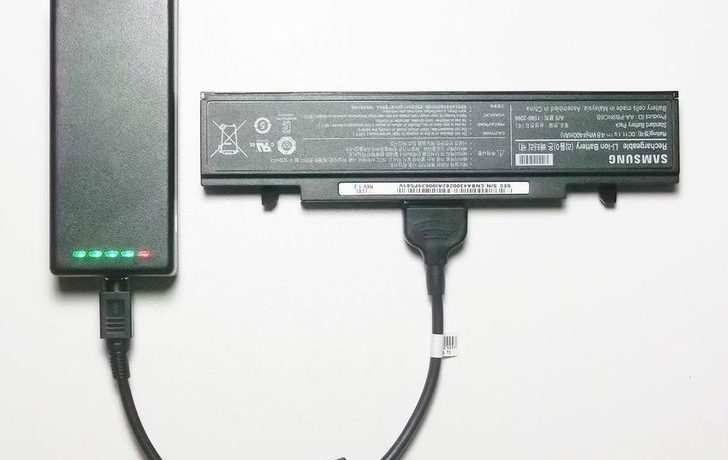How To Choose The Right Adapters for Your Laptops?
How To Choose The Right Adapters for Your Laptops
Laptops are portable devices with their own power supply in the form of a rechargeable battery. These batteries only last for so long before they need to be recharged. Laptops use power adapters that plug into wall outlets for this purpose. Hundreds of different brands of laptops exist on the market and each one uses its own type and model of adapter. When looking for laptop adapters, owners need to check the model number and the voltage and amperage requirements of their laptop.
This information is used to look for a compatible laptop adapter online. The voltage of an adapter needs to match the required voltage of the laptop. However, the amperage of an adapter can meet or exceed the required amperage. Laptop owners also need to get an adapter with the right connector type. The cylindrical connector tips are the most commonly used type for a laptop device. Another option is to look for a universal power adapter, which can adapt its power settings to the laptop and comes with multiple connector tips.
Laptops Use DC Power
All laptops use Direct Current (DC) power to operate. DC is electrical energy that flows consistently in one direction. Ideally, the power flows into the laptop. Most wall outlets use Alternating Current (AC), which varies constantly, but results in a positive flow of current. Laptops can’t work on this kind of power, so an adapter is required to convert the wall outlet’s current to DC power.
The adapter is the small, heavy black box connected to the cables between the laptop and wall outlet when charging the laptop battery. These devices are what make it possible for the laptop to use the AC power from a standard wall outlet. There are also DC adapters for those power outlets that do provide DC power.
Types of Adapters for Laptops
Laptops rely on two main types of power adapters for energy: the AC adapter and the DC Adapter. These adapters, also known as chargers, are what help convert the electricity from the wall outlet into a form that’s usable for the laptop.
AC Adapter
The AC adapter converts AC power from a wall outlet found in most homes to the DC power used by most small appliances. Laptops use DC power. This is the kind of power provided by batteries, which most laptops use to keep running when the owner is mobile.
DC Adapter
Laptops use DC power, so it doesn’t seem like a DC adapter is necessary when plugging into a DC power source. However, most sources of DC power provide a voltage that is too low for the needs of a laptop. A DC power adapter is required to take that power and convert it to a higher voltage that the laptop can use to charge its battery or run. DC power sources include cars, in-flight outlets, and solar power panels or batteries.
Finding the Right Model of Adapter
Since there are so many different adapters on the market, it’s essential to check which type of adapter a laptop requires before purchase. Most adapters are marketed for specific brands and models of laptops. They will also list the voltage, current, and polarity of the adapter. This way, laptop owners can select the appropriate adapter for their devices. Finding the correct adapter for a laptop means checking the laptop’s model number and power requirements.
- Get the laptop’s model number. This is usually printed on a small sticker affixed to the underside of the laptop.
- Get the power requirements for the laptop. This is also printed on a small sticker affixed to the underside of the laptop. It may also be printed near the laptop power port. Look for the amperage and the voltage required.
- Look up the model number online to find if there are compatible adapters available. The voltage and amperage of the adapter need to match the requirements of the laptop.
- Compare the connector type of the laptop adapter to any available adapters found online. They need to match to ensure that the adapter can plug into the laptop.
About Voltage
Voltage is what pulls electrical energy into the laptop. It’s kind of like the wheels on a paddleboat, which turn and push the paddleboat across the water. In this case, the paddleboat is actually a bunch of electrons. If the voltage of the laptop is different from that provided by the adapter, it won’t be able to create the correct charge needed to pull the electrical energy into the laptop. Finding the right voltage for a laptop adapter is also important to keeping the power from shorting out the laptop. A voltage that’s too high will overload the laptop’s circuits. Owners will end up needing to buy more than just a new adapter at that point.
About Amperage
Amperage, also known as current, is what gives the laptop enough power to run. It is the amount of electrical energy that flows into the laptop at any single moment. Laptops need the right amount of consistent energy flow to power all the circuits within the device. Usually, voltage is a measure of how much potential energy the laptop can use. The amperage on laptop power adapters needs to match or exceed the amperage required by the laptop.
Connector Types
When looking for a replacement laptop adapter, check that the connector is going to fit the laptop’s power port. All laptops use DC power connectors, but not all connectors are going to be the same.
|
Laptop Connector Types |
Description |
| Cylindrical Connectors | Known as barrel connectors, sleeve connectors, tip connectors, and coaxial power connectors; they are an insulated, hollow cylinder that connects to the laptop power port |
| Snap and Lock Connector | Also known as Kycon 3-pin and 4-pin DC power plugs; this connector has three or four pins surrounded by a thin, metal cylinder |
| Molex Connector | Often used on personal computers to supply power; several insulated electrical wires are encased by a flat, plastic rectangular case with 3, 4, or 6 terminals |
| USB connector | Consists of a hollow, rectangular metal tip, inside of which are two or more flat metal pins |
Some name brand companies will have their own specialized connector tips for their laptop adapters. This can make the search for an affordable adapter more difficult, but not impossible. The cylindrical connector is the most common type of connector used in laptops. Laptops and electronic devices may also commonly use USB plugs for their power ports. Several types of USB connectors are in use including, Type A, Type B, Mini A, Mini B, Micro A, and Micro B.
Conclusion
Laptops are mobile devices, but they require power cords and adapters to charge their batteries. There are two main types of laptop adapters: AC and DC power adapters. Each one converts the electrical energy from a power source to a form that can power the laptop. These adapters need to supply the right voltage, connector type, and amperage. This is important to ensure that the laptop charges properly. There are several different types of connectors and only one type will work for any single laptop.



















































